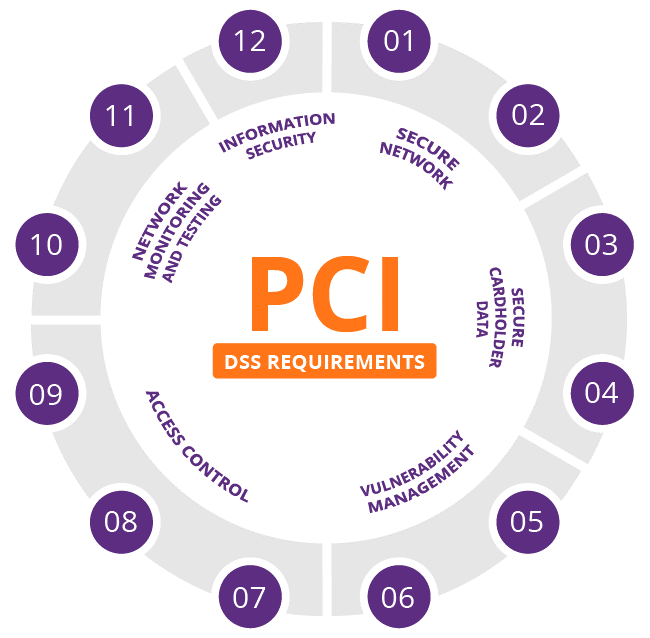Data Breaches: Fallout, Legal Issues, and Your Path to Recovery
In this ten-part blog series, we will unroll how businesses can navigate through the cybersecurity challenges. The third segment in this series sets the stage by delving into the legal implications of data breaches in India and internationally.
Data is the new currency in the modern digital age. Today, every business, from a small SaaS company to a large healthcare provider, collects, stores, and processes data heaps of personal information, that aids up to their operational efficiency. However, the very quality that makes this invaluable source of information the necessity also puts businesses at risk. Data breaches, the unauthorized access or disclosure of sensitive information, can have devastating consequences, ranging from financial risks to reputational and legal issues.
The Growing Threat of Data Breaches
Data breaches are an increasingly alarming issue worldwide. As per the Identity Theft Resource Center’s 2023 Data Breach Report, there have been over 3,205 reported data compromises in 2023, with millions of users’ records at risk. Every business, regardless of size and industry, faces the risk of being compromised. The attack against a major cloud storage provider that compromised millions of user accounts worldwide is a recent example to highlight the consequences of data breaches.
Fallout from a Data Breach
The fallout from a data breach can be multifaceted. Here’s a glimpse into the potential consequences:
Financial Losses: In the aftermath of a data breach, financial losses are inevitable. These losses will come in the form of monetary fines and penalties from regulatory agencies, legal fees due to lawsuits from affected stakeholders, and the costs of notifying customers or any other parties affected by the breach. There may also be additional expenses related to the required repair work on damaged systems and recovering the lost data.
Reputational Damage: A data breach can seriously undermine a company’s reputation. Customers may no longer trust their personal information with an organization, which will decrease sales and loyal audiences. It can take years to return to normalcy after that.
Operational Disruption: A data breach significantly disrupts a business’s operational priorities. The investigation of the breach, as well as the efforts regarding the recovery from it, demands to divert resources from the company’s core processes. In the worst-case scenario, a business might end up in a total collapse.
The Legal Landscape in India: DPDP Act 2023
Though India lacked a comprehensive law on data protection in the past, the newly enacted Digital Personal Data Protection Act 2023 (DPDP Act 2023) is quickly changing that precedent. This act aims to establish firm data protection legal rules for India, bringing it closer to international standards such as the GDPR.
Important Provisions of the DPDP Act 2023:
Personal Data: DPDP Act covers personal data in digital format, including both data that originates digitally, and non-digital data that is subsequently digitised. The provision applies to data processing within and outside India, if it relates to the offering of goods or services to individuals within India.
Data Fiduciary Obligations: Organisations that manage personal data are known as “data fiduciaries”. They must:
- Obtain user consent for data collection, accounting for personal data or monitoring changes in the user’s interests and preferences.
- Apply measures that guarantee the security of personal data.
- Notify both individuals and regulatory authorities if data security has been compromised.
Data Principal Rights: Individuals (data principals) have rights in the matter of their data, including access, rectification, and deletion.
Fines and Penalties: Penalties for non-compliance of the provisions by data fiduciaries up to INR250 crore. Some of these are:
- Breach in observance of duty of data principal up to INR10,000.
- Failure to notify the Data Protection Board and affected data principals in the event of a personal data breach is up to INR200 crore.
- Breach in observance of additional obligation in relation to children up to INR200 crore.
International Legal Landscape
Operating globally or collecting data from overseas consumers could subject you to international data privacy laws. The following are some of the most high-profile regulations:
CCPA (California Consumer Privacy Act): The CCPA empowers California residents with certain rights over their personal data use. Businesses must disclose the data they acquire, how businesses can use this data. It also requires companies to report data breaches. Consumers can request their data, data deletion, and control selling of their data.
GDPR (General Data Protection Regulation): The GDPR is the European Union’s extensive data protection law with regulations for consent and transparency. Companies need a legal basis to process consumer’s personal data, maintain high-security standards, notify the authorities and the people affected, of data breaches within 72 hours of the incident. Failing to meet the GDPR requirements leads to heavy financial penalties.
LGPD (Lei Geral de Proteção de Dados): LGPD is data protection legislation in Brazil, which is similar to the GDPR. The regulation allows data subjects to access, correct, and delete personal data. Firms must secure data using appropriate safeguards and advise authorities—and sometimes the people affected—of data breaches.
PIPL (Personal Information Protection Law): China’s PIPL legislation governs the acquiring, processing, and transfer of personal data. Although it provides data subjects with various rights, its emphasis on national security has spawned issues similar to the GDPR. Businesses may have to store specific data inside China and seek the government’s permission to transfer personal data out of the nation.
HIPAA (Health Insurance Portability and Accountability Act): HIPAA is a federal law that requires the creation of national standards to protect sensitive patient health information from being disclosed without the patient’s consent or knowledge.
CPA (Colorado Privacy Act): The CPA empowers Colorado residents control over their personal data, granting rights to know what’s collected, access it, delete it, and opt-out of its sale. Businesses must be transparent, implement security, and honour consumer requests. Nerodata Privacy, depending on its specific services, could help with:
- Data Mapping: Understanding what personal data you collect and where it resides.
- Consent Management: Streamlining consumer consent choices if applicable.
- Request Automation: Potentially automating responses to consumer requests for access, deletion, etc.
- Vendor Assessment: Evaluating the privacy practices of third parties you work with.
How BusinezExcellence Can Help
BusinezExcellence specializes in data protection and cybersecurity law. We help businesses navigate this complex legal landscape and mitigate the risks associated with data breaches. Here’s how:
DPDP Act Compliance and Risk Assessments: We conduct comprehensive audits to assess your data practices, identify vulnerabilities, and ensure compliance with the DPDP Act.
Global Data Privacy Strategy: We develop a tailored data privacy strategy considering international regulations like CCPA, GDPR, LGPD, and PIPL, applicable to your business operations.
Proactive Prevention and Breach Response: We draft robust data privacy policies, assist with consent mechanisms, and guide you through data breach containment, notification, and potential litigation.
Don’t Wait for a Breach to Act
Data breaches are a growing threat, and legal repercussions are evolving to be more severe. Partnering with a law firm with expertise in data protection law is a critical investment for businesses operating in today’s digital age. Consult BusinezExcellence team for assistance.




